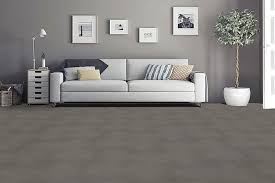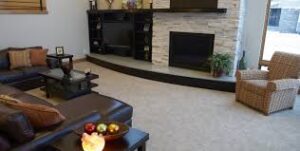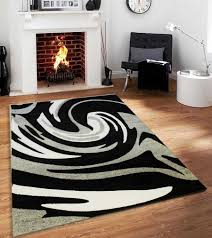WHY CHOOSE CARPET?
Always in style, cost effective, and safe, carpet tile flooring has been a go-to flooring option for many hotels. Most commonly found in guest rooms and heavy-traffic areas like lobbies, corridors and meeting rooms, carpet tile offers a variety of benefits that make it a popular choice among hotel owners and interior designers. Our infographic above outlines the benefits of carpet tile flooring installations in hotels:
Carpet tile is a popular hotel flooring choice due to the fact that it looks good, it is fairly easy to work with and maintain, and it has some great safety benefits. Here are additional benefits:
- It is cost effective
- It is an effective noise insulator
- It is available in a wide range of designs and styles
- It’s good for oddly shaped rooms
- Carpet tiles will always be in style
- The traction of carpet tile keeps guests safe from injury, as it is slip resistant
- It’s good for high traffic areas
- Carpet tile is easy to install, and can easily be replaced

The Benefits of Carpets
Every person has a way of decorating their floors. Those living in hotter countries are more likely to install tile or hardwood floors, but those in colder climes may fit their floors with rugs and carpets. There are reasons for this, and most of us don’t even realise them! You can find out about these reasons in the following article, and maybe even a tip or two about dealing with carpet stains.
Visually Pleasing
A great rug can complete the décor of your room. Whether woven, flat weave or embroidered, rugs are made from the point of view of aesthetics. A rug that features a range of colours and patterns can help bring light and vibrancy to a room. A decorative rug complements your furnishings, and even become the center of attention if it is made in an unexpected shade.
Insulating
Most people would prefer hard floors because they are easy to clean and great for stain removal! However, it does not offer insulating properties. Hard wood floors can become really cold when the temperature dips – if you have hard floors at home, you could add a rug for some extra layers and warmth. Since the fibres of the rug are compressed and packed together, they trap heat in the winter and maintain cool temperatures in the summer, which is why they are popular in colder climates.

Health & Environment friendly
As fine dust is held between the fibres of our carpets, the air and so will your lungs be healthier. Tests have proved that in rooms with wall-to-wall carpets there is up to 50% less fine dust in the air.
Easy to clean
Modern technology enables us to offer you a carpet with an optimal resistance to wear, dirt and stains for use in most interiors. Simply vacuum your carpet on a regular basis.
Enjoy the softness and warmth
There is nothing quite like the cosy feeling that carpet gives you. Your living room or bedroom floors are never cold to the touch and walking barefoot is a pleasure.
Works as a noise reducer
Sounds transmitted through ceilings, walls and floors are annoying. Our carpets absorb these noises better than any hard floorcovering. Textile floorcoverings clearly reduce the transmission of noise, both in the room where the noise is generated & in the adjoining rooms. Walking on a fitted carpet is 22 decibels less noisy than on a

Slip Resistance
Wall to wall carpeting is an inherently slip resistant floor covering that, when compared to hard non-impact absorbing surfaces, reduces the risk of slips and falls and the severity of injuries when accidents occur. This is particularly important for vulnerable groups – the elderly and children.
Acoustics
Carpet is the only floor covering that can significantly reduce impact and reverberation noise, creating a quieter environment, better social interaction, increased privacy, better speech intelligibility and cognition, and less stress.
Carpet is much more efficient in noise reduction than any other flooring surface.
While there are other sound absorption alternatives such as acoustic ceiling tiles and panels, they do not reduce floor impacts and for this reason cannot achieve the same overall reduction in noise levels.
What Are The Types Of Carpet Flooring?
Many factors like carpet density, color, style, pattern, pile and more will go into your decision for your perfect carpeting. Here is a rundown of the types of carpet that are out there:
Fibers:
- Nylon is the most prevalent carpeting material and is used in about 75% of all manufactured carpeting. Why? Because it is versatile and easy to care for. Nylon carpet is very soft and cozy but also sturdy, and impervious to stains. The extremely buoyant fibers can be invigorated by steam-cleaning to bring back their original beauty.
- Polyester carpet fiber holds vibrant colors and is quite fade-resistant and are non-allergenic. It is often made from recycled plastic bottles! People who are interested in being eco-friendly like this option for that reason. Its main disadvantage is that it is disposed to flattening under heavy weight, making it not-so-great for areas that a re high-traffic.
- Polypropylene is almost as soft as nylon but not as resilient and is highly stain-resistant but is prone to holding onto oils which accumulate grime. It is commonly used in carpets that are loop-style – such as Berber – which we will talk about more in a bit.
- Wool carpeting is a long-lasting material and, hands down, the softest carpet. However, low-grade wool is disposed to discoloration and high-grade wool is expensive. For this reason, some manufacturers combine wool with synthetics to get the best of all worlds.
Piles:
- Uncut carpet pile is sometimes called “loop pile” or “Berber pile.” It is uncut carpet pile that leaves the entire yarn loop intact on the surface of the piece. They are very hard-wearing, easy to clean, and resistant to stains, and don’t show dents caused by footprints or vacuums. For this reason, they are perfect for high-traffic areas – including commercial spaces. The key disadvantage of an uncut pile is that it is less soft and padded than cut-pile carpet.
- Cut pile is soft, inviting and easy to clean and can be made unique by altering the angle of the shearing that cuts the loop, or by means of different treatments on the fiber before and after it is interweaved into the backing. But it is easier to see foot marks and vacuum trails and is not as durable as uncut carpet pile.
- Saxony pile is made of individual strands standing upright to create a plush surface. The downside to this style is that strands are easily crumpled down by feet and susceptible to wear-and-tear and staining. Saxony is not suitable for high-traffic areas.
- Frieze cut pile consists of individual strands tightly curled erratically across the surface of the flooring. The style is very durable and hides dirt and stains well.
- Plush carpet pile is also sometimes called “velvet cut pile.” The fibers are short and densely-packed that create a luxurious carpeting. Regrettably, this flooring style is prone to scuffing and showing footprints.